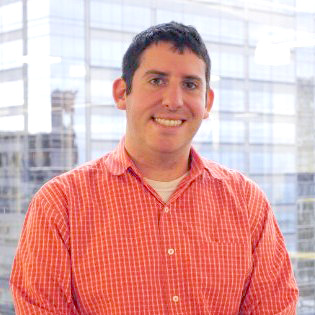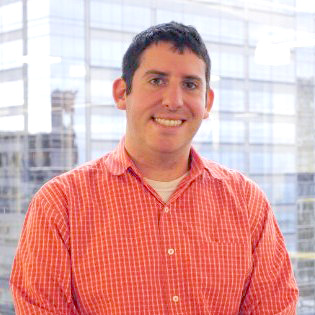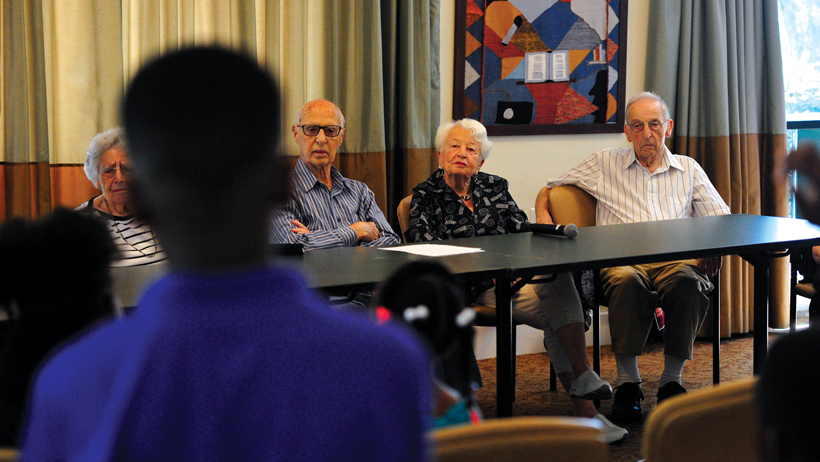This year, Free Slurpee Day at 7-11 and Amazon Prime Day coincided with the 17th of Tammuz, a minor fast that commemorates the siege of Jerusalem. Even with a convenient reminder on my calendar, I nearly broke my fast the minute I got up. Thankfully, I remembered to check my cell phone -- for the latest Amazon Prime deal -- and I remembered.
And herein lies the real challenge of the Three Weeks, a mourning period that typically happen in July, which commemorates the destruction of the First and Second Temple. The final day of the Three Weeks, Tisha B'Av, is supposed to be the saddest day of the Jewish year.
But in 2017, the Three Weeks are a significant hurdle for any Jewish person, let alone someone in their 20s on a nice summer day in Manhattan, or Chicago, cities that take on a complete different vibe this time of year.
Even from a strictly spiritual standpoint, the idea of Jerusalem being desolate and a city that "sits in solitary," as the opening lines of Eicha describes, is a challenging statement to relate to for those of us who were born after the Six-Day War. Anyone who's been on a Birthright Israel trip knows that Jerusalem is certainly not desolate, but an awe-inspiring city that can make even the least-connected Jew feel connected to his or her tradition.
With barbecues, weekend getaways and rooftop happy hours, it can feel difficult to be in a mourning period when our world around us is generally happy and festive. When frozen margaritas and cold brew coffee are en vogue, reflecting on a tragedy that happened thousands of years ago comes at a seemingly inconvenient time. And the timing is no accident.
Jewish holidays, in addition to being meaningful and full of lessons, often mark changes in the seasons. However, there is no summer holiday. The Three Weeks fills that void by reminding us that even during one of the most relaxing times of the year, it's important to step back and remember the cause of Tisha B'Av (baseless hatred) rather than the events themselves.
The Three Weeks provides an opportunity to break the routine of our otherwise leisurely summers to remind us that hostility towards one another still exists. Unlike other holidays, this period of time forces us to focus on our relationship with others, consider how we treat one another, and challenges us to be more compassionate at a time when it's least convenient.
Tisha B'Av can be a powerful experience. Last year, my first year living on the Upper West Side during this time, was particularly memorable. On most Saturday nights, many of the local bars and kosher pizza shops are a key meeting spot for Jews who live in the area, but one Saturday night last year coincided with Tisha B'Av and it was surprising to see those places completely desolate.
Even in the busy Manhattan streets, thousands of Jews came together to hear how a simple, yet serious transgression led to one of the biggest tragedies in Jewish history. There was a natural feeling like you were connected with everyone there.
Prior to the reading of Eicha, several strangers came up to me and wished me an easy fast. Interactions with people you don't know are unheard of on the Upper West Side, but Tisha B'Av, serving as a reminder to the dangers of baseless hatred, inspires us to connect with others.
If you choose to observe the Three Weeks, there are two ways to look at it. Either you can see it as a tremendous burden between all the restrictions on what you can listen to, buy and eat, or you can view it as an opportunity to be more aware of how we can eradicate hostility toward one another.
For me, the Three Weeks provides an opportunity to work on being a better person and make sure to never repeat the mistakes that led to the fall of both temples.










.jpg)



